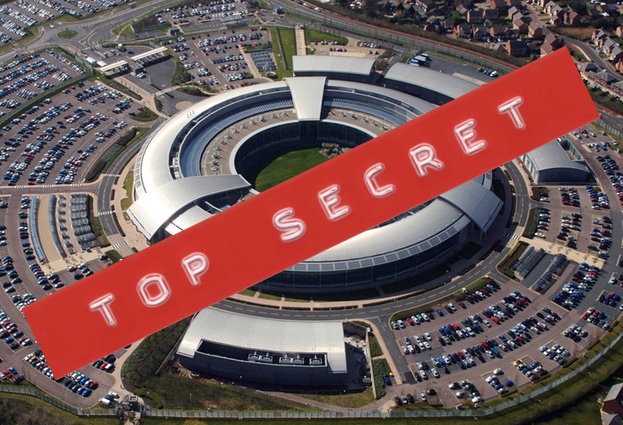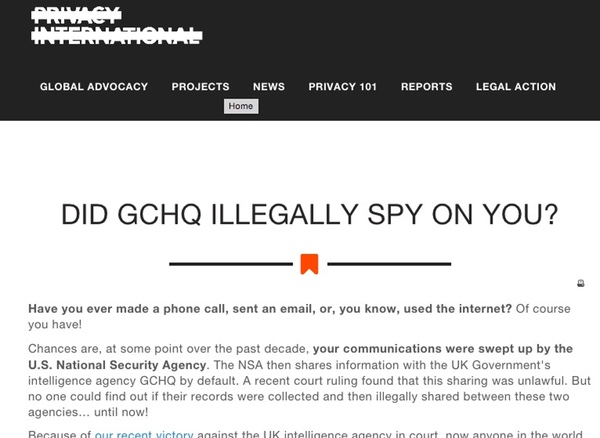Law enforcement agencies shouldn’t be above the law.
Find out if the UK’s GCHQ illegally spied on you…
Want to know if UK intelligence agency GCHQ has been covertly spying on you? Now here’s your chance.
Surveillance and privacy watchdog Privacy International has launched an initiative to help people discover if their internet activity and private communications were secretly and illegally spied upon by British intelligence outfit, GCHQ.
Earlier this month, the Investigatory Powers Tribunal (IPT) – which normally rubber stamps the activities of Britain’s spy agencies – slapped the wrists of GCHQ, censuring the spy agency for breaching human rights law.
According to the IPT, the British intelligence service acted unlawfully in accessing the personal communications of millions of people, collected by the NSA’s PRISM and UPSTREAM surveillance programs.
That intelligence-sharing between the USA and UK was unlawful prior to December 2014, because the rules governing GCHQ’s access to PRISM and UPSTREAM were secret.
To be within the law, the rules for data interception from people’s private phone calls, emails, and other internet communications have to be clear, accessible and public.
In short, until December 2014, because GCHQ kept the public in the dark about its dealings with the NSA, it violated human rights and was acting unlawfully.
That rather puts the lie to the standard statement that GCHQ regularly trots out, when the media and commentators question whether it has gone too far:
“All of GCHQ’s work is carried out in accordance with a strict legal and policy framework, which ensures that our activities are authorised, necessary and proportionate…”
Privacy International is now orchestrating an initiative to help members of the public determine if they were amongst those who were being spied upon, during the period that human rights were being violated.
All you have to do is visit the Privacy International website, and enter your details. Privacy International says that it will then go to court to demand that GCHQ reveal if it illegally received information about you from the NSA.
Have you ever made a phone call, sent an email, or, you know, used the internet? Of course you have!Chances are, at some point over the past decade, your communications were swept up by the U.S. National Security Agency. The NSA then shares information with the UK Government’s intelligence agency GCHQ by default. A recent court ruling found that this sharing was unlawful. But no one could find out if their records were collected and then illegally shared between these two agencies… until now!
“The public have a right to know if they were illegally spied on, and GCHQ must come clean on whose records they hold that they should never have had in the first place,” said Eric King, deputy director at Privacy International. “There are few chances that people have to directly challenge the seemingly unrestrained surveillance state, but individuals now have a historic opportunity to finally hold GCHQ accountable for their unlawful actions.”
Alternatively, you can make a complaint directly to the Investigatory Powers Tribunal.
Of course, there is some irony here. By entering your personal details, you’re granting permission for it to be shared with GCHQ so they can determine if they spied on you or not. Privacy International says that any data submitted will only be used for the purposes of determining if illegal spying occurred, and that GCHQ is only able to store the information for the duration of any IPT investigation.
According to The Guardian, thousands of people have already signed-up.
And there’s every chance that the number may get even higher. Because you don’t have to be British or even live in the UK to file a request. Anyone is able to ask whether data about their communications and online activity was improperly accessed by GCHQ.
Let’s hope that more feel brave enough to add their voice to the campaign, and send a loud message to the authorities that law enforcement agencies should not be above the law.








